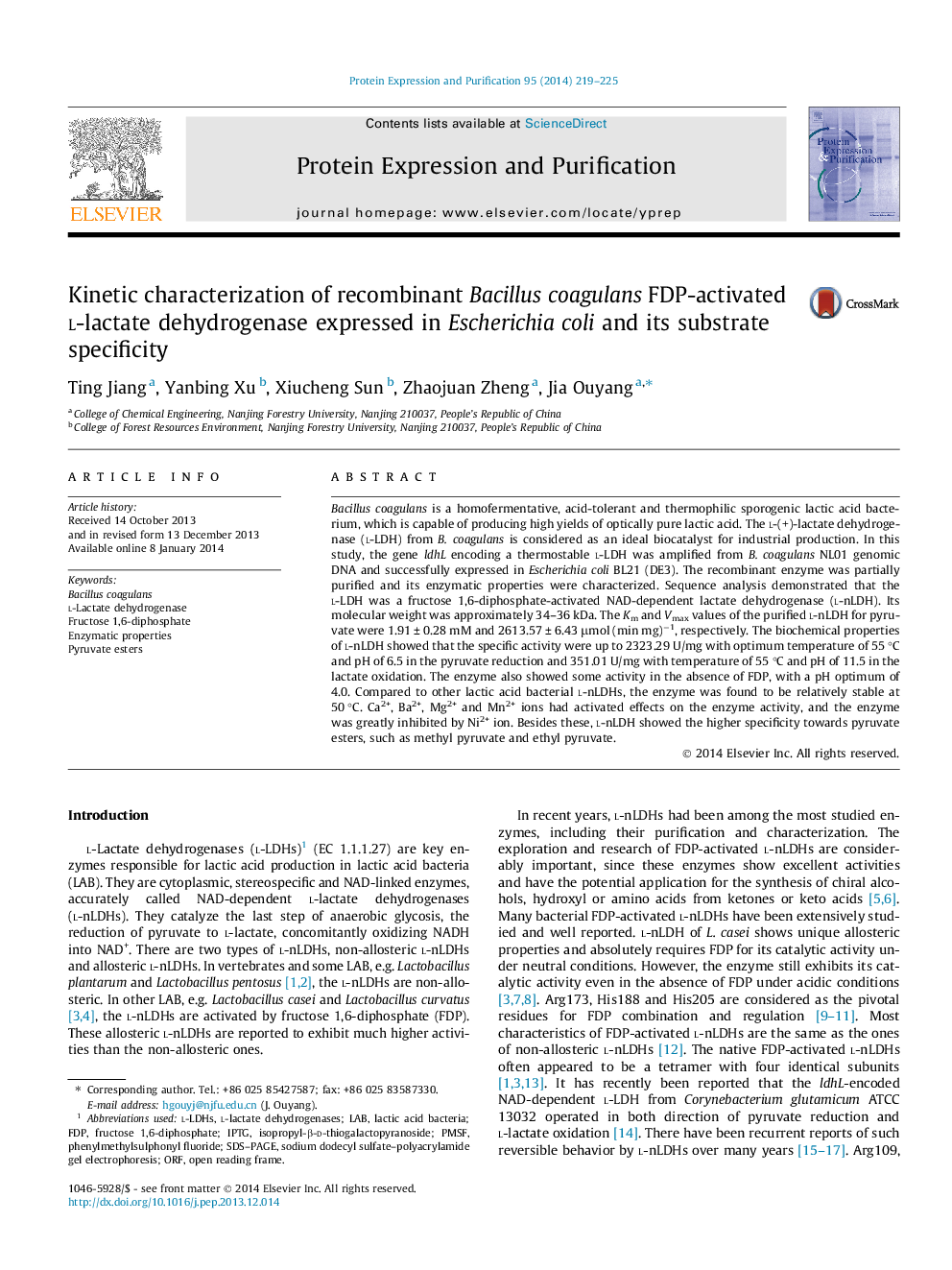| Article ID | Journal | Published Year | Pages | File Type |
|---|---|---|---|---|
| 8360714 | Protein Expression and Purification | 2014 | 7 Pages |
Abstract
Bacillus coagulans is a homofermentative, acid-tolerant and thermophilic sporogenic lactic acid bacterium, which is capable of producing high yields of optically pure lactic acid. The l-(+)-lactate dehydrogenase (l-LDH) from B. coagulans is considered as an ideal biocatalyst for industrial production. In this study, the gene ldhL encoding a thermostable l-LDH was amplified from B. coagulans NL01 genomic DNA and successfully expressed in Escherichia coli BL21 (DE3). The recombinant enzyme was partially purified and its enzymatic properties were characterized. Sequence analysis demonstrated that the l-LDH was a fructose 1,6-diphosphate-activated NAD-dependent lactate dehydrogenase (l-nLDH). Its molecular weight was approximately 34-36 kDa. The Km and Vmax values of the purified l-nLDH for pyruvate were 1.91 ± 0.28 mM and 2613.57 ± 6.43 μmol (min mg)â1, respectively. The biochemical properties of l-nLDH showed that the specific activity were up to 2323.29 U/mg with optimum temperature of 55 °C and pH of 6.5 in the pyruvate reduction and 351.01 U/mg with temperature of 55 °C and pH of 11.5 in the lactate oxidation. The enzyme also showed some activity in the absence of FDP, with a pH optimum of 4.0. Compared to other lactic acid bacterial l-nLDHs, the enzyme was found to be relatively stable at 50 °C. Ca2+, Ba2+, Mg2+ and Mn2+ ions had activated effects on the enzyme activity, and the enzyme was greatly inhibited by Ni2+ ion. Besides these, l-nLDH showed the higher specificity towards pyruvate esters, such as methyl pyruvate and ethyl pyruvate.
Related Topics
Life Sciences
Biochemistry, Genetics and Molecular Biology
Biochemistry
Authors
Ting Jiang, Yanbing Xu, Xiucheng Sun, Zhaojuan Zheng, Jia Ouyang,
